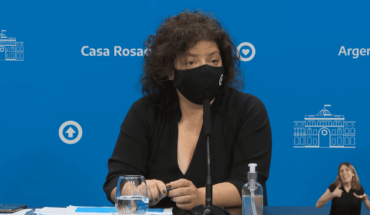
Improving levels of connectivity in the country in the context of a health emergency such as Covid-19 is not only a priority to reduce damage to the economy or education, but also provides an opportunity to optimize services, improve productivity standards and advance higher levels of justice and equity, where it is probably the easiest gap to reduce of all is precisely digital.
In this sense, we see that there are still thousands of second-rate digital citizens, who in practice are conditioned on their ability to access online services and procedures, mainly because they do not have access to good quality networks, either by living in isolated areas, but especially by the lack of adequate connectivity and at reasonable prices, with respect to high-income customers or corporate customers.
This 1 April the law regulating telework came into force, which in times of pandemic and strict measures of social isolation is relevant. But do we have justice and fairness of access to high-speed, high-quality networks to implement that in a good way? The answer is worrying: there are still multiple red zones in our country, without access to quality internet, which makes it difficult to implement a public policy of telework or tele-education.
In parallel and always regarding this health crisis, on April 2, the website comisariavirtual.cl was dropped by an over-claim of people from all over the country who tried to enter. The same is with the sites of several municipalities to renew circulation permits. That is why the absence of better technology and that is evenly distributed in an already fragmented territory, will hinder any effort to implement work or education at a distance and maintain the need for older adults to make eternal ranks to carry out their formalities.
Moreover, while some commercial establishments have adapted rapidly to serve their customers via the Internet and bring products and services to their homes, many state agencies – at the central or municipal level – still require “face-to-face” processing, rather than adapting to the new conditions prevailing in the country.
In addition, we need to recognize that the bidding process for implementing 5G technology will be delayed and for various reasons (increasing shortage of resources to invest, doubts about the potential health risks of this technology, etc.), so it is necessary to consider alternative measures that guarantee fairer and more equal access to a quality Internet for the most vulnerable economic areas and strata, especially today that millions of families do not have the possibility of working or mobilizing, and are confined to their homes with zero connectivity, or by accessing a second or third category internet. And partly this problem arises because radio spectrum has not been allocated on the basis of the criteria of efficiency and homogeneity required by both current law and jurisprudence, a problem that has been dragged on for twenty years or more.
A good solution to resolve the foregoing on a transitional basis would be for the State to grant experimental authorizations for spectrum use, in those segments not yet allocated, for operators that still have little spectrum. This does not even require legal changes.
According to figures delivered by the Subtel in December 2019, fixed internet connections reached 3.4 million subscriptions. In addition, the analysis indicates that of total Internet access (21.9 million subscriptions) 84.3% are made from a mobile device and that of the total mobile access (18.5 million 3G and 4G subscriptions), 94.3% corresponds to smartphone navigation (79.6% of total access).
The Covid-19 is generating a new paradigm in telework and distance education, changing the ways of relating in the workplace and student space and advancing the need for more robust and competitive telecommunications in all corners of the country, so that mobile operators can absorb the increased demand for consumer traffic.
Telework and distance education programs require an increase in quality connections to fixed locations, which in many cases can be obtained with better cost/quality ratio through solutions such as wireless fixed broadband (BAFI) or the 4G technology already available in many parts of the country, but not throughout the country, so that most Chileans can have higher quality connections in their homes.
At Conadecus we have strived to improve telecommunications services, through greater competition and fairer access to spectrum, so we look very closely at this issue, because although we are aware of the circumstances that our Chile is going through, we need the country to have rapidly implementing technologies (BAFI and 4G) that will benefit consumers and strengthen economically, both large companies and SMEs and all consumers, in order to deal better with this crisis.
The content poured into this opinion column is the sole responsibility of its author, and does not necessarily reflect the editorial line or position of El Mostrador.





